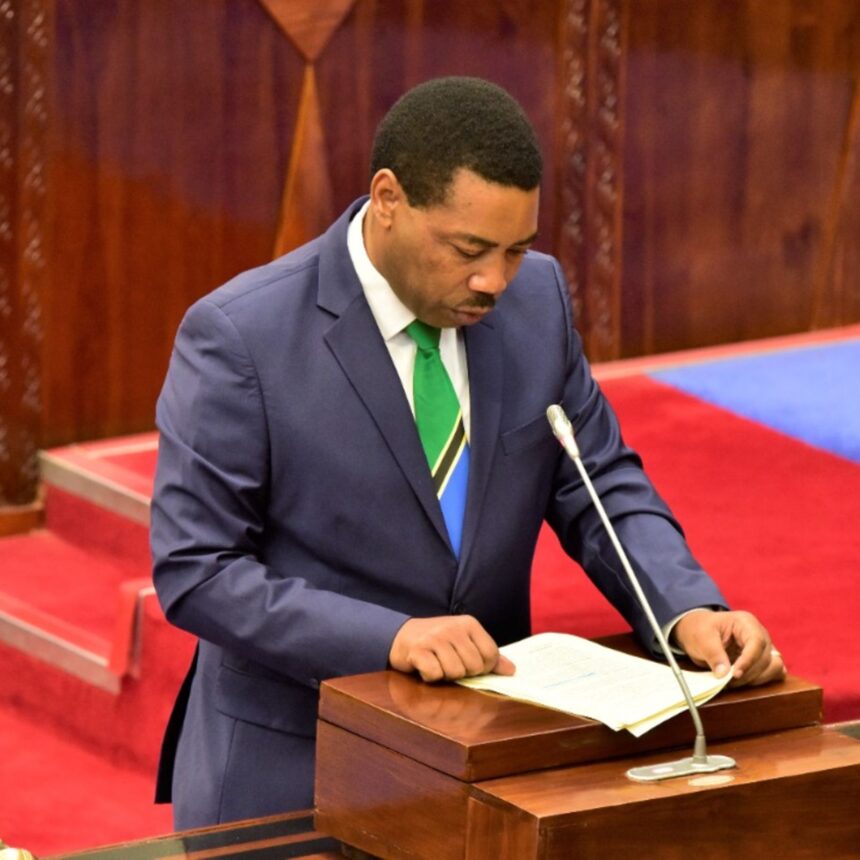Finance Minister Dr. Mwigulu Nchemba yesterday, on March 11, 2024, presented the budget framework for the year 2024/25 to the Members of Parliament in Dodoma.
During his presentation, Minister Mwigulu outlined six priorities of the government in the upcoming budget, set to commence implementation in July 2024.
In the proposed fiscal year, the government suggests a budget of 49.34 trillion Tanzanian Shillings, representing a 12% increase compared to the 2023/24 budget of 44.38 trillion Shillings.
A significant portion of the expenditure will be directed towards servicing government debt, public servant salaries, the 2024 local government elections, preparations for the 2025 General Election, settlement of claims, and construction/rehabilitation of stadiums for the 2027 Africa Cup of Nations (Afcon).
President Samia Suluhu also emphasized that the government will prioritize funding ongoing development projects and programs before allowing the registration of new projects, alongside funding preparations for the National Development Vision 2050.
Budget Structure
Dr. Mwigulu mentioned that for the 2024/25 budget, the government proposes to use 49.34 trillion Shillings, a 12% increase compared to the previous year.
Concessional loans and grants from development partners are estimated to be 5.13 trillion Shillings.
The government plans to borrow 6.61 trillion Shillings from the domestic market, with 4.02 trillion allocated for servicing maturing bonds and securities, and 2.59 trillion for funding development projects.
Additionally, the government plans to borrow 2.98 trillion Shillings from external markets under commercial terms to finance infrastructure projects.
Revenue estimates include 29.58 trillion Shillings to be collected by the Tanzania Revenue Authority (TRA), 3.40 trillion Shillings from non-tax revenues collected by ministries, institutions, and independent departments, and 1.34 trillion Shillings from local government revenues.
Out of the 49.34 trillion Shillings budget, 33.55 trillion is projected for recurrent expenditures, and 15.78 trillion for development expenditures, representing a 3.8% increase.
Development funds will include a development grant of 1.23 trillion Shillings to finance student loans for middle and higher education, as well as the primary and secondary education program without fees.
“Most of the budget, 70.1%, will be financed by domestic revenues, expected to increase by 10.0% in 2024/25. Therefore, the government will continue to prioritize efforts to strengthen domestic revenue collection,” said Dr. Mwigulu.


